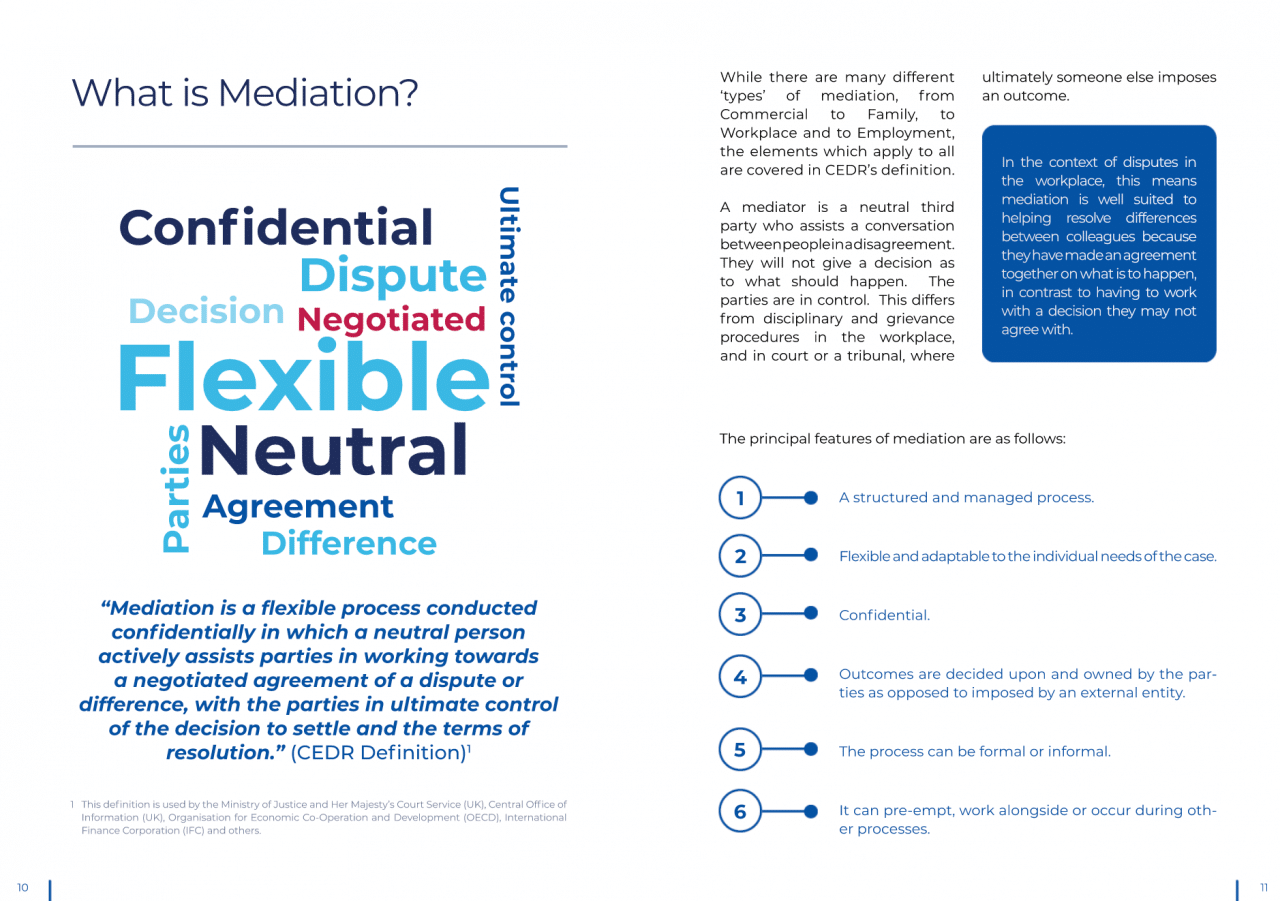I want to share with you the excellent article by Joachim Muller, my colleague at CEDR (Centre for Effective Dispute Resolution) which explains what Workplace Mediation is, who does it and when it’s a good time to start the process of mediation:
Workplace Mediation is an invaluable tool in restoring relations, or finding solutions to the breakdown of relations without resort to tribunal, as a case study in The Guardian describes: “Without mediation she would have gone to tribunal and the stress would have been horrendous for her. It would have been bad for the company too, if it had lost the case under the Disability Discrimination Act.” (https://www.theguardian.com/money/2009/oct/31/mediation-in-the-workplace)
A survey of 9000 senior CIPD members asked, “What are the benefits of workplace mediation?”
The survey found the respondents reported the following benefits:
- To improve relationships between employees 80.5%
- To reduce or eliminate the stress involved in more-formal processes 63.6%
- To avoid costs involved in defending Employment Tribunal claims 51.7%
- To develop an organisation culture that focuses on managing and developing people 38.1%
- To reduce sickness absence 38.1%
- To retain valuable employees 37.3%
- To maintain confidentiality 27.1%
- Other 6.8%
What is the value?
The costs of external mediation recorded by the CIPD’s survey respondents are significantly lower than the costs of handling disciplinary and grievance cases. This survey found that employers spend an average of 18 days in management and HR time alone on each disciplinary case, and 14.4 days in managing grievances. This suggests some employers’ fears about the costs of mediation are overstated.
Interested in hiring, or training as, a mediator?
I trained as an Employment and Workplace Mediator with CEDR, and can highly recommend the training. Becoming an accredited employment and workplace mediator is especially suitable for:
- Those responsible for resolving disputes in-house
- HR Professionals (ER, L&D, HRBPs, Managers and Directors)
- In-House Lawyers
- Line Managers / Directors
- Complaints handlers and customer services representatives
- Trade Union / Work Council Representatives
- Professional Body Representatives
- Commissioners of ‘neutral’ workplace or employment investigations and other processes (e.g. reviews, independent investigations, Chairing appeals, etc.)
Interested in getting CEDR’s world class training? Considering whether an external mediator could help resolve or prevent a workplace dispute? I am an Associate to CEDR and are happy to talk you through the options. Contact me here





